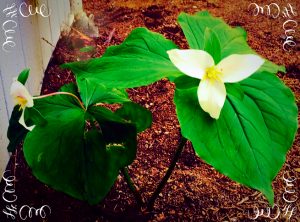In light of the recent devastation to communities in Houston, Florida, Puerto Rico and now the tragedy in Las Vegas, I wanted to offer help to those affected. Truly, all of us are affected when bad things happen in our world, just some of us are closer to the tragedies than others. For those of you who are pained by the recent events but not sure what to do or how to feel about them, please read the following example and tips that I wrote awhile back.
Stacey’s Story
“Everything is pretty terrible actually.” I ran into a friend at the store, when this tumbled out of her mouth. She had recently been in a car accident and sustained a concussion. As an employee and student, she had to get extensions from her boss and instructors for deliverables and assignments. She said, “I just can’t concentrate. I can’t focus. I can’t get anything done. My life changed in an instant. I’ve been sidelined.”
I was so sad to see this beautiful young woman struggle like this. She was always a real go-getter, a runner, a successful sales person, and now she was stopped in her tracks. Stacey verbalized what she felt as a victim of brain trauma, but she could easily be describing what people everywhere say about trauma in general. Her story is much like injuries to the soul- what I call Soul Holes. Whether you’ve experienced trauma to the brain, the body or the soul, trauma hurts. It affects your functioning, your confidence, and your relationships. Loss, divorce, abuse, theft, assault, bankruptcy, natural disasters all can have traumatizing effects.
She could easily be describing what people everywhere say about trauma in general.
What Trauma Does…
To your Brain: Trauma impacts new learning, focus, concentration, and memory. You may not be able to function after the trauma at the same level you functioned before the trauma. Healing takes time and a lot of effort.
To your Relationships: Trauma affects your ability to trust, cope, and form healthy relationships. Bonding may be more difficult for you because you are wary of something bad happening consciously or unconsciously. Your brain is so occupied with survival, that things like affection, intimacy, and empathy essential to healthy relationships, don’t come naturally.
To your Emotional Health: Trauma disrupts your ability to self-sooth, control your feelings, and your ability to distinguish between safe and unsafe people. Everything inside feels messed up and unstable. You question and doubt yourself and the people around you, and possibly even trust people and places that shouldn’t be trusted. Your flight or flight responses could be locked into over drive leaving you emotionally spent and confused.
To Your Body: PTSD results in tightened muscles, shallow breathing, racing thoughts, rapid heart rate and hyper vigilance. Contrarily, creativity directly affects those symptoms by relaxing the body, deepening the breath, focusing the mind, slowing the heart rate and calming response triggers. Trauma has been linked to heart disease, obesity, addiction, pulmonary illness, diabetes, autoimmune disorders, and chronic pain disorders.
To Your Paradigm: Trauma affects the way you see the world and yourself. You may not see the world as a trustworthy place to grow, in which to take risks and thrive. You may not see yourself as having the ability, the confidence, the worth-whileness to accomplish good things in the world.

Just like the Trauma Flower.
The Trillium is a perennial that grows in the lush forests of the Pacific Northwest. It’s usually found in the wild protected by a canopy of pines and maples. It loves the ample rain fall and blooms in the spring. It’s so special to see on a hike through the forest it just makes you want to pick it. But picking the bloom traumatizes the plant. Picking the bloom retards its growth because the corn is unable to gather enough nutrients from the sun for next year’s bloom. Once traumatized, the flower may never bloom again.
The Trillium is our very own Trauma Flower. It reminds us when our bloom is plucked, we must be very careful to restore ourselves for future blooming. If we don’t take care of the trauma after-math, our insides start to die. Without plenty of attention, healing and nurturing, we can’t be restored to health.

What Will Help You:
Getting Safe: Doing whatever it takes to make your world safe and secure. Your body and soul need rest, recovery time and patience. You may feel effects from the trauma for weeks and months after the traumatic event. This is normal. However, getting yourself physically and emotionally safe is paramount for healing to occur.
Having Choices: Victims of trauma will feel like their choices were taken away, and the trauma was forced upon them. Whether by accident or by will, you went through something in which you had little to no choice. You will need the ability to make choices about your recovery, your resting period, and your healing to feel powerful again.
Being Empowered: If you were traumatized by someone or something, you felt a loss of power and control. You still may feel that way. You may not be able to control your stress level, your emotions, your anger or your drug or alcohol use. You need help to bring back a sense of empowerment. Setting boundaries with the help of safe people will get you back to a state of Empowerment.
Do Something: Those who do something fair better in the long run than those who do not. For example, those who donate money, volunteer to help, give blood, call a friend or relative, make a plan, or organize a crisis response feel less helpless and more confident. The feeling of being able to help someone else through a bad situation can be powerfully healing. Today, in response to the Las Vegas mass shooting, I published this blog and made an apple cobbler for my family. Bringing comfort to the people I care about makes me feel more in control and less helpless when bad things happen.
Having Help and Collaboration: You won’t be able to recover fully on your own. You will need the help of healthy people, experts, people who’ve been there, and people who care. Even though trauma can leave you feeling isolated and ashamed, reach out to helpful people. Allow safe people to help you make decisions about your recovery and your next steps. Opening up to trustworthy people is a wonderful first step in getting “yourself back.”
Having Reliability and Predictability: Trauma can leave your inner and outer world disorganized with lots of loose ends and unfinished business. You can’t expect to get your life back in order right away. Give yourself time and routine. As much as possible, set your calendar with routine and predictability in mind with plenty of margin for rest and self-nurture. Accomplish one small thing a day and congratulate yourself for the movement, no matter how small it is.

What Stacey Did Right:
Asked for Help: Once she learned she wasn’t thinking clearly, she immediately asked her superiors for extra time to complete projects.
Was Patient with Herself: She didn’t expect herself to recover right away. Sure, that would be nice, but she was listening to the doctors about what was realistic to expect. She, like the trillium may need to wait a few seasons before her bloom returns. She understood that growth and healing were happening behind the scenes, even if there was no evidence of it yet.
Talked About It: Though my friend and I hadn’t caught up in awhile, she didn’t hide her recent struggles. She opened up about the real circumstances she experienced. She even saw a counselor to help her prioritize the things that were now important for her.
Didn’t Pretend it Didn’t Happen: My friend could have been tempted to deny the negative affects of her trauma and pretended she could carry on business as usual, but she didn’t. She knew it is always better to face reality than to hide from the truth.
Wasn’t Ashamed: My friend was experiencing weakness, real struggle, and even a sense of failure. But she decided that she wasn’t going to be ashamed of her struggle, she was going to bring it into the light and talk about it.
I know it’s hard.
There are many of us out there that wish we could talk about our trauma as freely as my friend talked about her head injury. Some traumas like abuse, bullying, betrayal, or significant loss are just not that easy to talk about or get help for. I totally get that. I’ve struggled with things in my life that I felt were so taboo to talk about.
But talking about them is exactly what will bring us healing.
Trauma loses its power when its brought into the light. Pain doesn’t seem so big when it’s brought out of hiding. As we feel the pain of trauma in our own lives, and see the pain of trauma in others, let’s give ourselves the space needed for healing, and the will to move forward in a positive direction.

